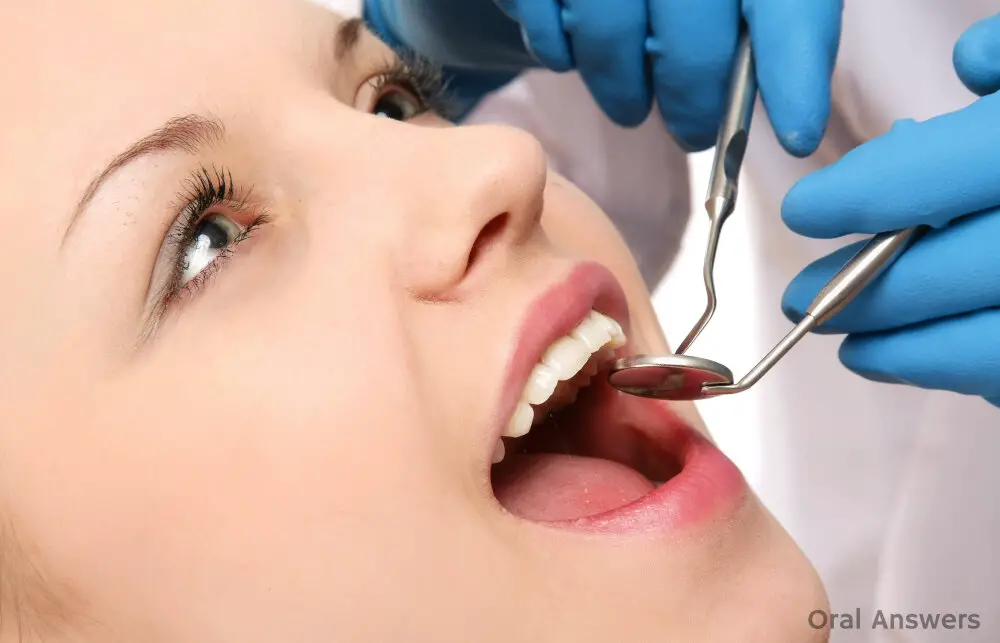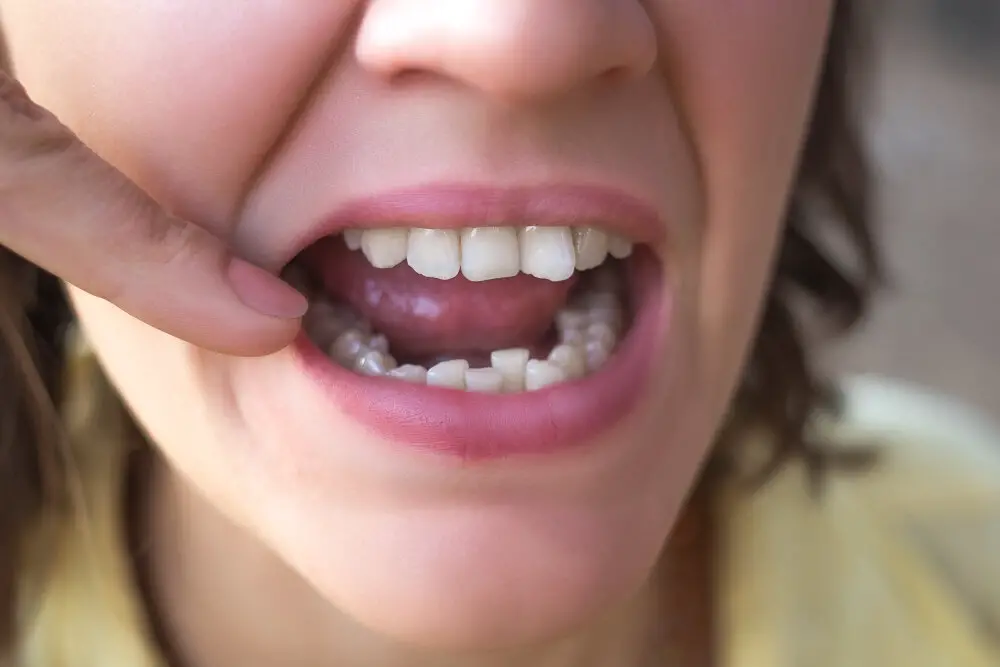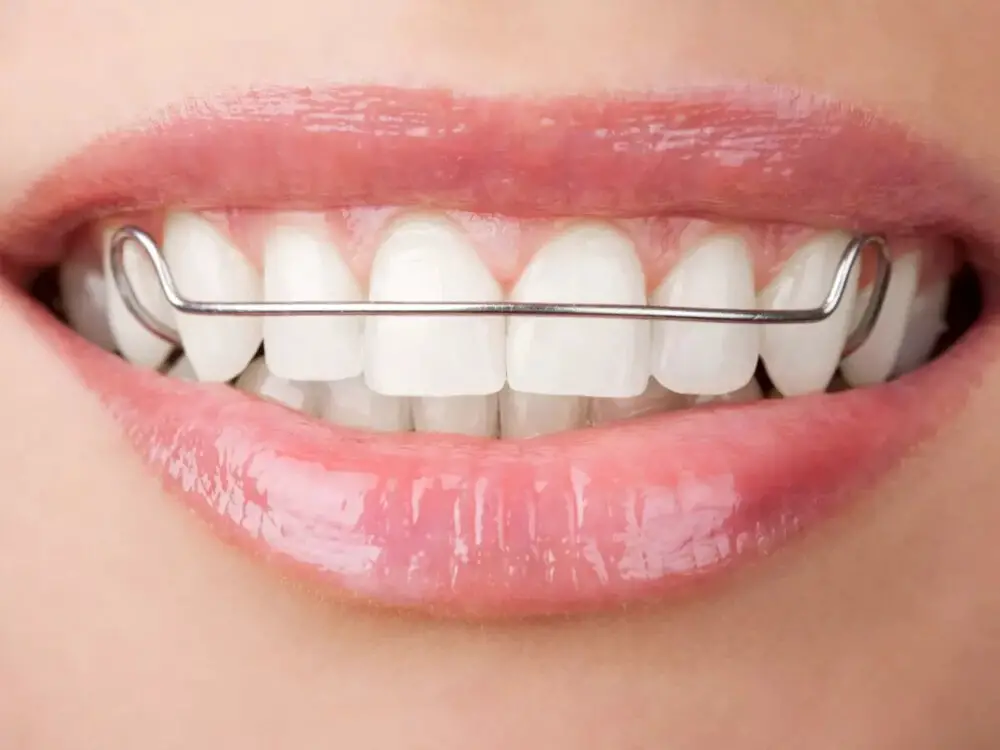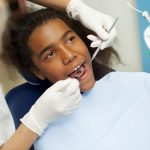5Day Wisdom Teeth Removal Diet: What to Eat for a Quick Recovery

Wisdom teeth extraction is a common procedure that many individuals undergo. While the surgery itself takes only a few hours, the recovery process can take up to two weeks. During this time, it is essential to follow a proper diet to promote quick healing and avoid complications. The first five days after wisdom teeth removal are especially critical, as the risk of infection and dry socket is highest during this period. In this article, we will discuss the 5-day wisdom teeth removal diet and provide tips on what to eat for a quick recovery. Following a healthy diet after wisdom teeth extraction is crucial to aid the healing process and reduce discomfort. During the first few days, it is recommended to consume soft and easy-to-chew foods to prevent damaging the extraction site. The right diet can help reduce inflammation and promote the growth of new tissue. Additionally, staying hydrated is crucial to prevent complications such as dry socket, which can cause severe pain and slow down the recovery process. With the right tips and knowledge, you can ensure a speedy and uneventful recovery after wisdom teeth removal.
Wisdom teeth are the third molars that grow at the back of the mouth, usually in the late teens or early twenties. In some cases, these teeth can cause problems, such as crowding or pushing other teeth out of alignment, and can become impacted or infected. The most common solution to these issues is to remove the wisdom teeth. Wisdom teeth removal is a surgical procedure that involves numbing the area around the teeth, making incisions in the gums, and then extracting the teeth. It is typically done under local or general anesthesia and requires some recovery time. Following the procedure, it’s important to follow a diet that promotes healing and avoids irritating the surgical site.
A proper diet is crucial during the recovery period after wisdom teeth removal. The body needs essential nutrients, vitamins, and minerals to heal effectively and efficiently. A nutritious diet that includes lean protein, complex carbohydrates, healthy fats, and plenty of fruits and vegetables can help reduce inflammation, promote tissue repair, and strengthen the immune system. On the other hand, consuming foods that are high in sugar, salt, and unhealthy fats can delay the healing process and increase the risk of infection. It is essential to follow a healthy diet plan during the recovery period to ensure a quick and successful recovery.
Day 1: Liquid Diet

Day 1 of the Wisdom Teeth Removal Diet is typically the most challenging one, as patients are required to consume only liquids. This is due to the fact that the mouth is still healing, and solid foods could harm the surgical site, leading to bleeding or other complications. Therefore, it is essential to maintain a liquid diet for at least 24 hours after the surgery. Patients can drink various fluids such as water, fruit juice, clear broths, and sports drinks to stay hydrated and nourished. However, it is crucial to avoid beverages that are high in sugar or contain caffeine, as they could slow down the healing process and cause discomfort. Consuming a liquid diet may sound easy, but it can be challenging for some patients. It is essential to choose nutrient-rich liquids that provide the body with the necessary vitamins and minerals for proper healing. Patients can consume protein shakes, smoothies, and soups to help meet their nutritional needs. It is also important to avoid using straws while drinking, as the suction motion could disrupt the healing process. Patients should take small, frequent sips throughout the day to stay hydrated and help reduce swelling. Additionally, it is important to follow the dentist’s instructions regarding pain medication and oral hygiene to ensure a quick and successful recovery.
When it comes to a wisdom teeth removal diet, it is crucial to prioritize hydration. Drinking plenty of fluids can help to prevent dehydration and promote healing. However, not all liquids are created equal. Some beverages can be irritating to the mouth and may even disrupt the healing process. As such, it is recommended to stick to gentle, non-acidic liquids such as water, coconut water, herbal tea, and low-sugar electrolyte drinks. These liquids can help to keep the body hydrated while avoiding any potential discomfort or complications. Additionally, it is important to avoid drinking through a straw or spitting, as this can dislodge the blood clot and delay the healing process.
When it comes to consuming liquids after wisdom teeth removal, there are a few tips to keep in mind to ensure comfort and a quick recovery. First, avoid using straws as the sucking motion can dislodge the blood clot and delay healing. Instead, sip liquids slowly and steadily from a cup or glass. Second, opt for cool or room temperature liquids, as hot or cold beverages can cause pain or sensitivity in the mouth. Third, try to avoid acidic, carbonated, or sugary drinks that can irritate the extraction site. Instead, choose water, herbal tea, or diluted fruit juice to stay hydrated and promote healing. By following these tips, you can make the liquid consumption process more comfortable and support a speedy recovery after wisdom teeth removal.
During the recovery period after wisdom teeth removal, it is best to avoid certain foods that can irritate your gums or cause pain. Hard foods such as nuts, chips, and popcorn should be avoided as they can get stuck in the sockets or cause damage to the surgical site. Spicy and acidic foods can also cause discomfort and irritation to the gums, so it is best to avoid them. Additionally, foods that require excessive chewing such as tough meats or sticky candies should be avoided as they can put pressure on the sockets and cause pain. It is important to stick to a soft and nutrient-rich diet during the recovery period to ensure a quick and successful healing process.
Day 23: Soft Foods

On Day 23 of the wisdom teeth removal diet, you can finally start introducing some soft foods into your diet. This is a big milestone in your recovery journey as it means you can now start to eat more varied and tasty foods. However, it’s important to remember that your mouth is still healing, so you should still be careful with what you eat. Soft foods are a great option as they are easy to chew and won’t put too much pressure on your teeth and gums. When it comes to soft foods, there are plenty of options to choose from. You could try scrambled eggs, oatmeal, mashed potatoes, or soup. You could also have some cooked vegetables like carrots, sweet potatoes, or squash. If you’re feeling adventurous, you could even try some soft fruits like bananas, mangoes, or peaches. Just be sure to avoid any foods that are too hot, too cold, too spicy, or too crunchy, as these could irritate your mouth and cause discomfort. Overall, soft foods are a great way to ease yourself back into eating regular foods after your wisdom teeth removal surgery.
After wisdom teeth removal surgery, it’s essential to stick to a soft food diet for a few days to allow your gums to heal. Soft foods are easier to chew and swallow, reducing the risk of irritation or infection. Some recommended soft foods include mashed potatoes, scrambled eggs, oatmeal, smoothies, yogurt, and soup. It’s also important to avoid spicy, acidic, or crunchy foods that may cause discomfort or disrupt the healing process. Incorporating soft, nutrient-rich foods into your diet can help speed up the recovery process and ensure a quick return to normal eating habits.
When it comes to preparing and eating soft foods, there are a few tips to keep in mind for a successful recovery after wisdom teeth removal. Firstly, ensure that the foods you choose are easy to chew and swallow, such as mashed potatoes, soups, smoothies, and scrambled eggs. Secondly, avoid hot, spicy, and crunchy foods that can irritate the surgical site and cause discomfort. Thirdly, try to incorporate nutritious foods that are high in protein, vitamins, and minerals to support healing, such as Greek yogurt, cottage cheese, and pureed fruits and vegetables. Finally, be mindful of your portion sizes and avoid overeating, as this can cause nausea and discomfort. By following these tips, you can make the most of your 5-day wisdom teeth removal diet and ensure a quick and comfortable recovery.
When it comes to a wisdom teeth removal diet, it’s important to avoid certain foods that can hinder the healing process and cause discomfort. Hard and crunchy foods such as chips, nuts, and popcorn can irritate the surgical site and potentially dislodge the blood clot, leading to a painful condition called dry socket. Additionally, sticky and chewy foods like caramel and gum can also pull the clot out of the socket. Spicy or acidic foods like hot sauce and citrus fruits may cause discomfort and irritation in the mouth. It’s best to stick to soft, easy-to-eat foods like mashed potatoes, smoothies, and soup to promote quick and comfortable healing.
Day 45: SemiSolid Foods

On the 45th day of your wisdom teeth removal diet, you may gradually start incorporating semi-solid foods into your diet. These foods are easier to chew and swallow, making them a great option for patients who are still recovering from the surgery. Examples of semi-solid foods include mashed potatoes, scrambled eggs, oatmeal, and pureed fruits and vegetables. It is important to avoid any foods that are hard or crunchy, as they can still cause damage to the surgical site. When introducing semi-solid foods into your diet, it is best to start with small portions and slowly work your way up to larger quantities. This will give your body time to adjust and prevent any discomfort or pain. It is also important to continue consuming plenty of liquids and soft foods, such as soup and smoothies, to keep your body hydrated and nourished during the recovery process. By following these guidelines, you can help ensure a smooth and speedy recovery from your wisdom teeth removal surgery.
After wisdom teeth removal surgery, it’s important to stick to a soft, semisolid diet to allow the surgical site to heal properly. Recommended semisolid foods include mashed potatoes, scrambled eggs, oatmeal, smoothies, pureed soups, and yogurt. These foods are easy to eat and swallow, and provide the necessary nutrients to promote healing. It’s also important to avoid crunchy or hard foods, as well as hot and spicy foods, as they can irritate the surgical site and delay the healing process. By following a semisolid diet and avoiding certain foods, patients can ensure a quick and successful recovery after wisdom teeth removal surgery.
When preparing and eating semisolid foods during the recovery period after wisdom teeth removal, it is important to keep a few tips in mind. First, make sure to choose foods that are soft and easy to chew, such as mashed potatoes, scrambled eggs, and smoothies. Secondly, avoid foods that are too hot or too cold, as this can cause discomfort or pain. It is also important to avoid spicy or acidic foods, as they can irritate the surgical site. Finally, take your time when eating and avoid using straws, as the suction can dislodge the blood clot that is forming in the socket. By following these tips, you can ensure a quick and comfortable recovery after wisdom teeth removal.
After wisdom teeth removal surgery, it is crucial to avoid foods that can potentially damage the wound, cause pain, or result in infection. Hard and crunchy foods like chips, nuts, and popcorn should be avoided as they can get stuck in the sockets and cause an infection. Spicy or acidic foods can irritate the wound and cause pain. Carbonated drinks, alcohol, and hot beverages like tea and coffee should also be avoided as they can cause dry socket or hinder the healing process. Additionally, foods that require excessive chewing or require opening the mouth wide, such as burgers or sandwiches, should be avoided during the recovery period. It is recommended to stick to soft, cold, and easy-to-swallow foods like smoothies, yogurt, soup, and mashed potatoes to promote healing and quick recovery.
Recovery Tips

Recovery Tips are essential for a quick and painless healing process after a wisdom teeth removal. Taking care of yourself and following some simple guidelines can make a big difference in your recovery. One of the most important tips is to rest and take it easy for a few days after the surgery. Avoid any strenuous activities or exercises that can cause discomfort or bleeding. It is also recommended to sleep with your head slightly elevated to reduce swelling and inflammation. Another useful tip is to follow a special diet that promotes healing and prevents any complications. This 5-day wisdom teeth removal diet includes soft and easy-to-digest foods such as smoothies, soups, mashed potatoes, and yogurt. It is crucial to avoid hard, crunchy, and spicy foods that can irritate the surgical site and cause pain. Drinking plenty of fluids and keeping yourself hydrated is also crucial for a quick and successful recovery. You can also use ice packs and pain medication to manage any discomfort or swelling. By following these recovery tips, you can ensure a smooth and successful recovery after your wisdom teeth removal.
In addition to following a healthy and balanced diet, there are a few additional tips that can help you recover quickly after wisdom teeth removal. First and foremost, it’s important to stay hydrated by drinking plenty of water and avoiding sugary drinks. You should also avoid smoking, as nicotine can slow down the healing process and increase the risk of infection. Additionally, getting plenty of rest and avoiding strenuous physical activity can help your body focus on healing. Finally, be sure to follow your dentist or oral surgeon’s instructions closely and attend all follow-up appointments to ensure a smooth and successful recovery. By taking these steps, you can help ensure a speedy and healthy recovery after your wisdom teeth removal procedure.
When it comes to recovering from wisdom teeth removal, the right diet can make all the difference. However, there are some common mistakes that people make that can slow down or even hinder their recovery. One of the biggest mistakes is eating hard or crunchy foods that can irritate the surgical site or dislodge the blood clot. Another mistake is consuming hot or spicy foods that can cause pain and inflammation. Additionally, some people make the mistake of eating foods that are too acidic or sugary, which can also slow down the healing process. To ensure a quick and smooth recovery from wisdom teeth removal, it’s important to stick to soft, easy-to-chew foods that are nutritious and gentle on the mouth.
Proper nutrition is an essential component of the recovery process after wisdom teeth removal. A balanced diet packed with essential nutrients helps to promote the healing process, reduce inflammation, and prevent infection. It is essential to avoid hard, crunchy, and spicy foods that can irritate the surgical site, and instead, opt for soft, nutrient-dense foods such as soups, smoothies, and mashed potatoes. Adequate hydration is also critical, as it helps to flush out toxins and prevent constipation. Overall, a healthy diet during recovery can help to speed up the healing process, minimize pain and discomfort, and ensure a quick and successful recovery.
In conclusion, following a wisdom teeth removal diet can significantly speed up the recovery process and minimize discomfort. It is important to avoid hard, crunchy, and spicy foods during the first few days after the surgery and to stick to soft foods and liquids. Incorporating protein-rich foods and avoiding sugary and acidic drinks can also aid in the healing process. It is recommended to continue following the diet plan for at least a week after the surgery to ensure proper healing. Additionally, maintaining good oral hygiene and taking prescribed medications as directed by your dentist can further promote a speedy recovery. By following these recommendations, patients can experience a quick and comfortable recovery after wisdom teeth removal.
Conclusion

In conclusion, the 5-day wisdom teeth removal diet is a crucial aspect of ensuring a smooth and quick recovery after the surgery. By following the recommended foods and avoiding certain foods that may cause complications, patients can reduce discomfort, accelerate healing, and prevent infections. The diet should consist of soft, nutrient-dense, and easy-to-digest foods such as soups, smoothies, mashed potatoes, yogurt, and eggs. Adequate hydration, rest, and gentle oral care should also be prioritized. Overall, a well-planned and balanced diet can make a significant difference in the recovery process and help patients return to their normal routine sooner.






